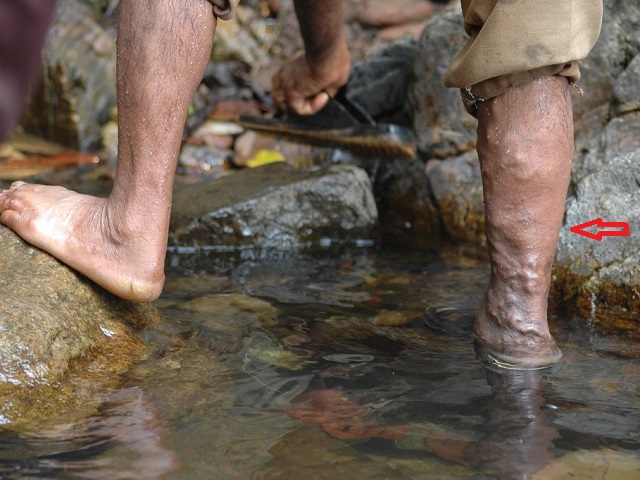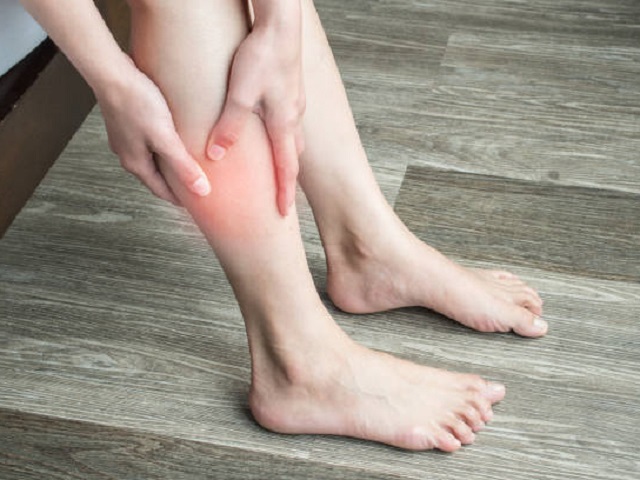7 Signs You May Have Varicose Veins -- Symptoms, Causes, Effects, Treatment and Prevention
Varicose veins are enlarged, twisted veins that typically occur in the legs and feet. They are caused by weakened or damaged valves within the veins, which disrupts the normal flow of blood and leads to pooling. Here is an explanation of varicose veins, including their symptoms, diagnosis, causes, effects, treatment, and prevention.
Symptoms of Varicose Veins:
Varicose veins are often characterized by the following symptoms:
- Bulging, twisted veins that are visible under the skin
- Dark purple or blue color of the affected veins
- Aching or throbbing pain in the legs
- Swelling, especially after prolonged standing or sitting
- Itching or a feeling of heaviness in the legs
- Muscle cramps or restless legs
- Skin changes, such as discoloration, dryness, or the development of ulcers in severe cases
Causes of Varicose Veins:
Varicose veins can be caused by various factors, including:
- Weak or damaged vein valves: The valves in the veins that help regulate blood flow may weaken or become damaged, leading to blood pooling and vein enlargement.
- Age: The risk of developing varicose veins increases with age as the veins lose elasticity and the valves weaken.
- Gender: Women are more prone to varicose veins due to hormonal changes during pregnancy and menopause.
- Family history: Having a family history of varicose veins increases the likelihood of developing them.
- Prolonged sitting or standing: Jobs or activities that involve long periods of sitting or standing can contribute to the development of varicose veins.
- Obesity: Excess weight puts additional pressure on the veins, increasing the risk of varicose veins.
- Pregnancy: Hormonal changes and increased blood volume during pregnancy can cause veins to enlarge and become varicose.
Effects of Varicose Veins:
While varicose veins are generally not a serious medical condition, they can cause discomfort and lead to complications such as:
- Leg ulcers: In severe cases, varicose veins can lead to the formation of painful ulcers on the legs.
- Blood clots: Blood pooling in varicose veins may increase the risk of blood clot formation, known as deep vein thrombosis (DVT).
- Bleeding: Occasionally, varicose veins close to the skin's surface may rupture and cause bleeding.
Diagnosis of Varicose Veins:
Varicose veins can typically be diagnosed through a physical examination by a healthcare professional. In some cases, additional tests such as Doppler ultrasound may be used to evaluate the blood flow and identify any underlying venous abnormalities.
Treatment and Prevention of Varicose Veins:
Treatment options for varicose veins include:
- Lifestyle changes: Regular exercise, maintaining a healthy weight, elevating the legs, and avoiding prolonged periods of sitting or standing can help alleviate symptoms and prevent the progression of varicose veins.
- Compression stockings: Wearing compression stockings helps improve blood flow and alleviate symptoms.
- Sclerotherapy: A procedure in which a solution is injected into the affected veins, causing them to collapse and fade over time.
- Endovenous thermal ablation: This minimally invasive procedure uses laser or radiofrequency energy to seal and close off the affected veins.
- Vein stripping and ligation: In more severe cases, surgical procedures may be performed to remove or tie off the affected veins.
It's important to consult with a healthcare professional for a proper diagnosis, personalized treatment plan, and to discuss available options.
References:
Mayo Clinic. (2021). Varicose veins. https://www.mayoclinic.org/diseases-conditions/varicose-veins/symptoms-causes/syc-20350643
National Heart, Lung, and Blood Institute. (2020). What are varicose veins? https://www.nhlbi.nih.gov/health-topics/varicose-veins
Cleveland Clinic. (2020). Varicose Veins. https://my.clevelandclinic.org/health/diseases/16872-varicose-veins
Image Attribution:
Featured image by Jackerhack, CC BY-SA 2.5, via Wikimedia Commons














